Justice Hagedorn regarding Democracy in the Park: “Once again, when the events were announced, the Campaign could have challenged its legality. It did not”
Brian Hagedorn, who ran as a conservative, has once again joined the liberal wing of the Wisconsin Supreme Court, this time authoring a decision that tossed President Donald Trump’s election lawsuit on a 4-3 vote.
Essentially, the majority found that Trump’s campaign unreasonably delayed in raising the questions in its lawsuit until after the election for most of his claims, a stance that three conservative justices harshly criticized in dissents, accusing the majority of not deciding on the law and supplanting the will of the Legislature with that of the unelected Wisconsin Election Commission (which is dominated by two large Joe Biden donors). The conservatives argued that clerks erred in how they advised voters.
“In short, if the relief the Campaign sought was granted, it would invalidate nearly a quarter of a million ballots cast in reliance on interpretations of Wisconsin’s election laws that were well-known before election day,” Hagedorn wrote for the Majority. “It would apply new interpretive guidelines retroactively to only two counties. Prejudice to the respondents is abundantly clear.”
He chastised the Trump campaign by writing, “These issues could have been brought weeks, months, or even years earlier. The resulting emergency we are asked to unravel is one of the Campaign’s own making.”
Hagedorn, who ran with heavy backing from conservatives, has repeatedly sided with the liberal wing of the court on election and COVID-19 related matters.
Conservatives Dissent
In a blistering dissent, conservative Justice Rebecca Bradley accused the Court of acting unconstitutionally.
“Rather than fulfilling its duty to say what the law is, a majority of this court unconstitutionally converts the Wisconsin Elections Commission’s mere advice into governing ‘law,’ thereby supplanting the actual election laws enacted by the people’s elected representatives in the legislature and defying the will of Wisconsin’s citizens. When the state’s highest court refuses to uphold the law, and stands by while an unelected body of six commissioners rewrites it, our system of representative government is subverted.”
She added, “The consequence of the majority operating by whim rather than law is to leave the interpretation of multiple election statutes in flux——or worse yet, in the hands of the unelected members of the WEC.”
In another dissent, Justice Pat Roggensack wrote, “Once again, four justices on this court cannot be bothered with addressing what the statutes require to assure that absentee ballots are lawfully cast.” She added, “The Milwaukee County Board of Canvassers and the Dane County Board of Canvassers based their decisions on erroneous advice when they concluded that changes clerks made to defective witness addresses were permissible. And, the Dane County Board of Canvasser erred again when it approved the 200 locations for ballot collection that comprised Democracy in the Park.”
She further noted, “Gatherings in 200 city parks did not meet the statutory requirements for lawful absentee voting…The Milwaukee County Board of Canvassers and the Dane County Board of Canvassers based their decisions on erroneous advice when they concluded that changes clerks made to defective witness addresses were permissible.”
Annette Ziegler, in a dissent, wrote, “The majority seems to create a new bright-line rule that the candidates and voters are without recourse and without any notice should the court decide to later conjure up an artificial deadline concluding that it prefers that something would have been done earlier. That has never been the law, and it should not be today. It is a game of ‘gotcha.'” She denied that the Trump campaign unreasonably delayed raising the issues, saying it was challenging ballots.
She noted, “The majority should state what the law is.” She accused the majority of placing “the will of this court and the will of the Wisconsin Elections Commission above the express intent of the legislature
You can read the decision here.
Hagedorn, Ann Walsh Bradley, Jill Karofsky, and Rebecca Dallet formed the majority in rejecting Trump’s challenge to the Wisconsin election results. Conservative justices Pat Roggensack, Rebecca Bradley, and Annette Ziegler dissented.
Dallet and Karofsky, in their concurrence, wrote, “The President failed to point to even one vote cast in this election by an ineligible voter; yet he asks this court to disenfranchise over 220,000 voters. The circuit court, whose decision we affirm, found no evidence of any fraud.” In a separate decision, though, Hagedorn wrote that he believed in some instances that the campaign had raised “valid election administration concern” although not one sufficient enough to strike ballots.
The decision notes that Trump’s lawsuit sought to “invalidate the ballots——either directly or through a drawdown——of more than 220,000 Wisconsin voters in Dane and Milwaukee Counties.” The campaign’s challenges focused on ballots on Dane and Milwaukee Counties.
“First, it (the Trump campaign) seeks to strike all ballots cast by voters who claimed indefinitely confined status since March 25, 2020. Second, it argues that a form used for in-person absentee voting is not a “written application” and therefore all in-person absentee ballots should be struck. Third, it maintains that municipal officials improperly added witness information on absentee ballot certifications, and that these ballots are therefore invalid. Finally, the Campaign asserts that all ballots collected at ‘Democracy in the Park,’ two City of Madison events in late September and early October, were illegally cast.”
Hagedorn wrote, “We conclude the Campaign is not entitled to the relief it seeks. The challenge to the indefinitely confined voter ballots is meritless on its face, and the other three categories of ballots challenged fail under the doctrine of laches.”
What is the doctrine of laches? According to Avvo, “Laches is an unreasonable delay in pursuing a right or claim in a way that prejudices the opposing party and renders the granting of a claim inequitable. Put another way, the doctrine of laches bars relief where the party seeking relief has been guilty of excessive, unjustified delay in asserting rights.”
Roggensack slammed the laches argument, writing, “The majority does not bother addressing what the boards of canvassers did or should have done, and instead, four members of this court throw the cloak of laches over numerous problems that will be repeated again and again, until this court has the courage to correct them. The electorate expects more of us, and we are capable of providing it.”
Indefinitely Confined Voters
Hagedorn wrote that “Wisconsin allows voters to declare themselves indefinitely confined, provided they meet the statutory requirements.” The clerks had expanded this to everyone due to COVID-19. Photo ID is not required to obtain an absentee ballot if you’re an indefinitely confined voter.
He wrote, “The Campaign’s request to strike indefinitely confined voters in Dane and Milwaukee Counties as a class without regard to whether any individual voter was in fact indefinitely confined has no basis in reason or law; it is wholly without merit.”
The Other Claims
Hagedorn quoted a court decision on laches that says, “”Laches is founded on the notion that equity aids the vigilant, and not those who sleep on their rights to the detriment of the opposing party.”
He found, “The Campaign’s delay in raising these issues was unreasonable in the extreme, and the resulting prejudice to the election officials, other candidates, voters of the affected counties, and to voters statewide, is obvious and immense.”
He wrote that there is a form that goes with absentee ballots but that the campaign is arguing it’s not really an application. “Waiting until after an election to challenge the sufficiency of a form application in use statewide for at least a decade is plainly unreasonable,” Hagedorn wrote.
In addition, he wrote, “The process of handling missing witness information is not new; election officials followed guidance that WEC created, approved, and disseminated to counties in October 2016. It has been relied on in 11 statewide elections since, including in the 2016 presidential election when President Trump was victorious in Wisconsin. The Campaign nonetheless now seeks to strike ballots counted in accordance with that guidance in Milwaukee and Dane Counties, but not those counted in other counties that followed the same guidance. The Campaign offers no reason for waiting years to challenge this approach, much less after this election.”
As for Democracy in the Park, he wrote, “Once again, when the events were announced, the Campaign could have challenged its legality. It did not.”
Table of Contents


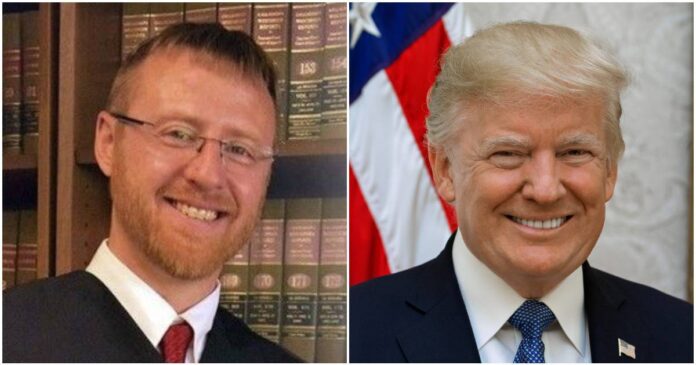


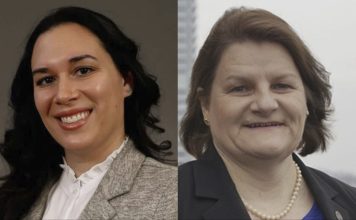


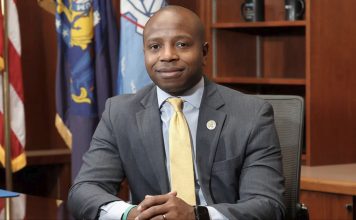
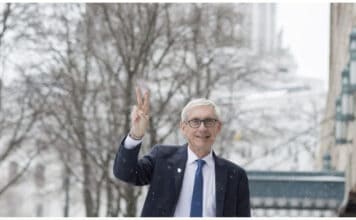

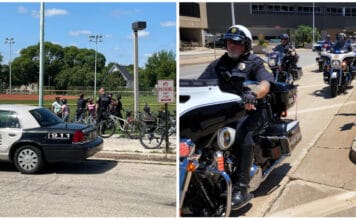

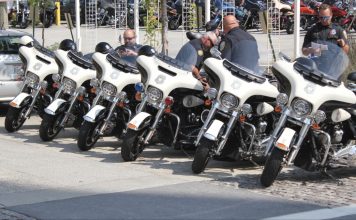







![WATCH: Elon Musk Town Hall Rally in Green Bay [FULL Video]](https://www.wisconsinrightnow.com/wp-content/uploads/2022/04/Elon_Musk_3018710552-356x220.jpg)











